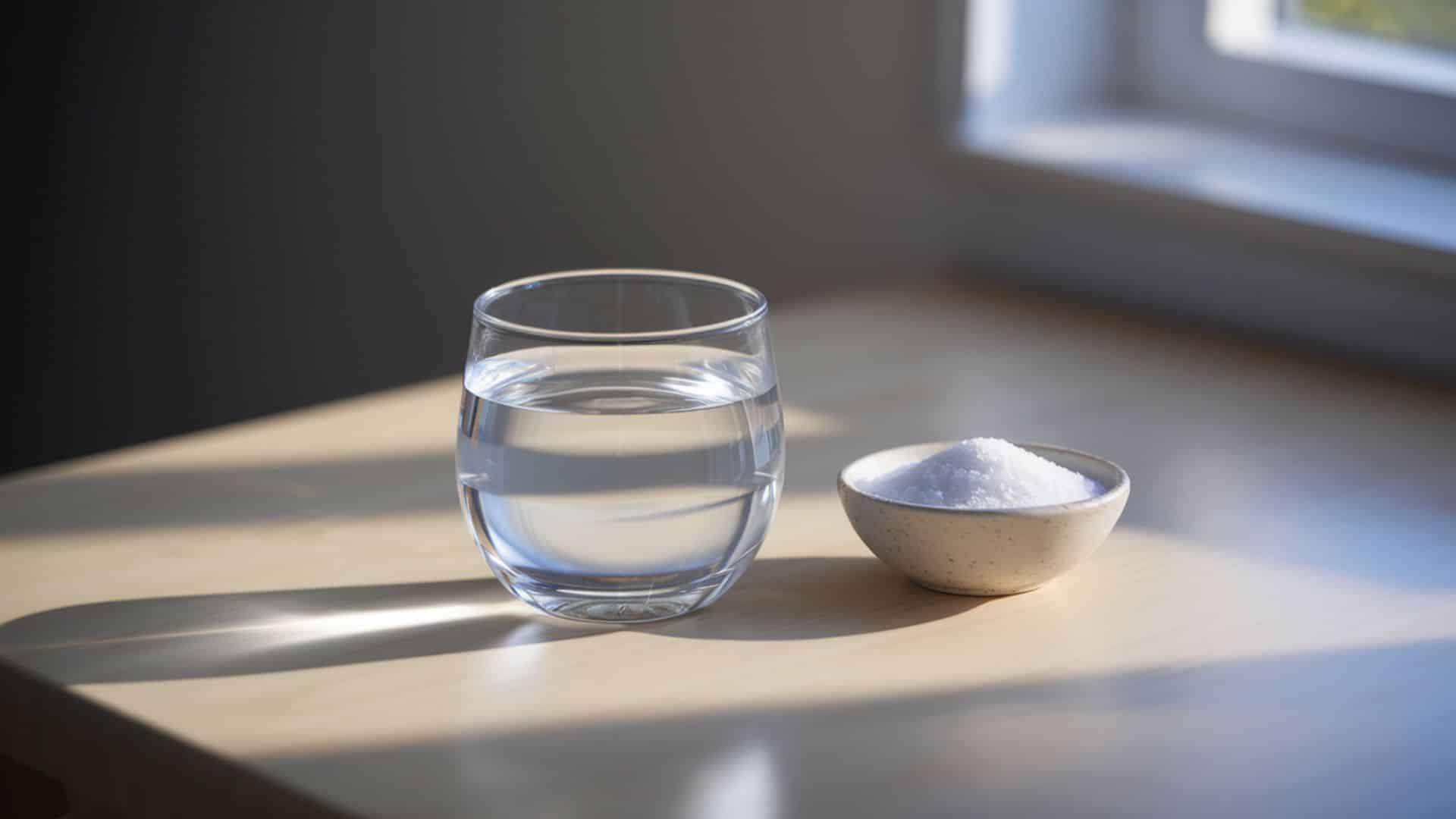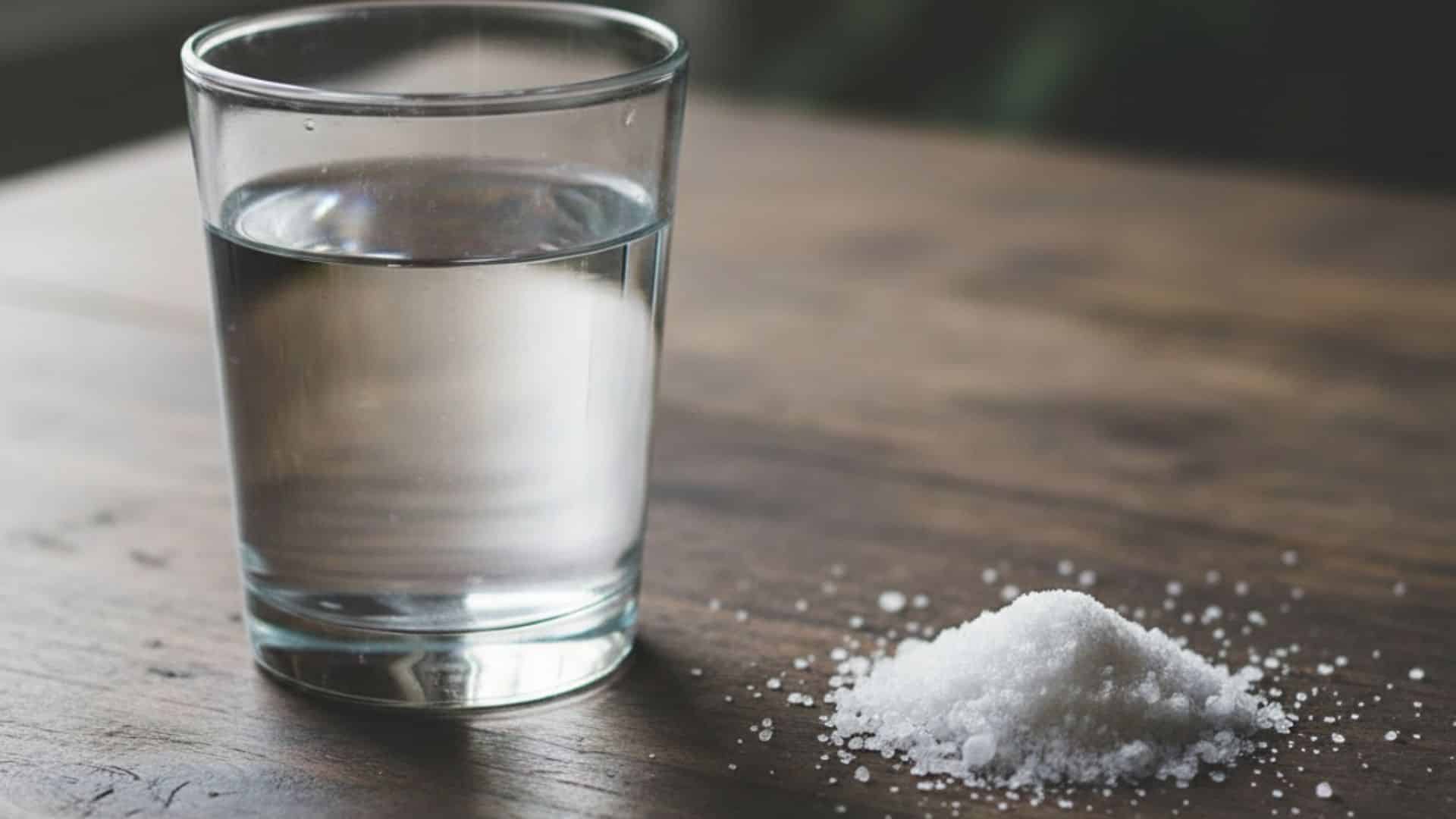Ever wondered why people gargle salt water for sore throats or rush to the beach when stressed?
Saltwater remedies are gaining attention within the health community. From ocean therapy to warm saltwater drinks, these practices are increasingly visible online.
Traditional cultures have used seawater for healing purposes for centuries. Modern wellness enthusiasts now promote the use of salt water for digestion, skin health, and detoxification.
But is salt water good for you, or just another health trend?
This guide explores the science behind the benefits of saltwater. We’ll cover what works, what doesn’t, and when saltwater might benefit your health. You’ll learn safe practices and important risks to avoid.
What Is Salt Water? (Natural vs Homemade)
Salt water comes in two main forms. Each type has different uses and mineral content.
Seawater is a natural form of saltwater found in oceans. It contains about 3.5% salinity. This translates to approximately 35 grams of salt per liter of water. Ocean water contains minerals such as magnesium, potassium, and calcium.
Warm salt water is a home remedy you can make. Most people use one teaspoon of salt per glass of warm water. This results in a significantly lower salt concentration than seawater.
Sea salt contains trace minerals that table salt lacks. These include iodine, zinc, and iron. Table salt is processed and often has added iodine.
You should not drink seawater. The high salt content can lead to severe dehydration. Your kidneys cannot process that much salt. However, controlled use of diluted saltwater may offer specific health benefits.
Hydration & Electrolyte Balance Through Salt Water

Is salt water good for you for hydration? The answer is yes, but only in very controlled amounts.
- Salt provides sodium, an essential electrolyte that helps the body retain water.
- It’s used in oral rehydration therapy (ORT) and by athletes after intense workouts.
- Some drink warm salt water with lemon for hydration support, though the benefits are modest.
- Excessive salt intake has the opposite effect, leading to dehydration and elevated blood pressure.
- A pinch of salt may help, but plain water is generally the best choice for most people.
Salt water for electrolytes makes sense after heavy sweating. But sports drinks or coconut water often work better. They contain balanced minerals without excess sodium.
The key is moderation. Small amounts help. Large amounts cause harm.
Salt Water Benefits for Skin
Ocean water has been used for skin conditions for centuries. Modern research supports some of these traditional uses.
| Salt Water Skin Benefits | Details & How It Works | Important Tips |
|---|---|---|
| Reduces Acne & Eczema | Minerals like zinc (anti-inflammatory) and magnesium (supporting skin regeneration) help soothe irritated skin. | Use natural sea salt for best results; avoid table salt. |
| Mild Exfoliation | Salt removes dead skin cells, improving skin texture and balancing pH levels. | Overuse can dry skin; always moisturize afterward. |
| Smoother Skin After Ocean Visits | A combination of salt, minerals, and sun exposure enhances skin smoothness and health. | Individuals with sensitive skin should patch test before applying. |
Is salt water beneficial for your skin? Yes, with moderate use. Ocean swims and diluted salt water rinses offer real benefits.
Salt Water for Sinus and Throat Relief
Gargling with warm salt water can help alleviate sore throats. Studies confirm this practice works. The salt reduces swelling in the throat tissues. It also helps flush out bacteria and irritants.
To make a saltwater gargle:
- Mix half a teaspoon of salt in warm water
- Gargle for 30 seconds
- Spit it out (don’t swallow)
- Repeat several times daily
Salt water gargling reduces throat pain and inflammation and is often recommended by doctors. Nasal rinses with saline help clear mucus and ease sinus congestion.
Inhaling sea air may improve breathing and benefit individuals with asthma or allergies. However, salt water should complement, not replace, medical treatment.
Important safety notes:
- Use only distilled or boiled water for nasal rinses
- Never use tap water directly
- Clean your neti pot thoroughly after each use
- Stop if you feel pain or discomfort
The respiratory benefits of salt water are real. Gargling and nasal rinses offer safe and effective relief for many people.
How the Sea Supports Mental Wellness (Blue Health)?
Being near ocean water affects your mental state. Scientists refer to this as “blue health.”
Research shows that ocean environments lower cortisol levels. Cortisol is your body’s main stress hormone. Lower cortisol means reduced anxiety and a better mood.
Studies found that people who visit the beach regularly report:
- Lower stress levels
- Better sleep quality
- Reduced symptoms of depression
- Improved overall well-being
The calming sound of waves, negative ions in sea air, and natural beauty all promote relaxation and boost mood.
Walking barefoot on the beach, or “earthing,” may reduce inflammation by connecting you to the earth’s natural energy.
The sensory feel of ocean water activates your body’s “rest and digest” mode, supporting mental wellness. Spending time near or in the ocean offers real emotional benefits, even if salt baths at home provide milder effects.
What Science Says about Saltwater?

Saltwater has natural antibacterial properties that help keep minor wounds clean and prevent bacterial growth, promoting the faster healing of small cuts and scrapes.
Minerals in ocean water may enhance circulation and support the skin’s natural barrier function, while cold water immersion helps reduce inflammation, thereby aiding the body’s healing processes.
However, drinking salt water does not boost immunity; a common myth without scientific evidence. The immune system relies on proper nutrition, adequate sleep, and overall good health, rather than excessive saltwater consumption.
Excess salt intake can actually strain the body. The real healing benefits of salt water come from external use, such as ocean swimming or topical application, not from drinking it.
Final Verdict: Is Salt Water Actually Good for You?
Let’s review the evidence on the relationship between salt water and health.
| Benefit Area | Salt Water Use | Backed by Science? |
|---|---|---|
| Hydration | Only in ORT / limited cases | With caution |
| Digestion | Flush, mild laxative | Mixed evidence |
| Skin | Acne, eczema relief | Moderate support |
| Respiratory | Gargle, nasal rinse | Proven relief |
| Mental Health | Ocean immersion | “Blue health” studies |
| Immune Boost | Drinking salt water | Not supported |
Salt water offers real benefits when used correctly.
Conclusion
So, is salt water good for you? The answer depends on how you use it.
Gargling warm salt water provides proven relief for sore throats. Ocean swimming supports both skin health and stress reduction. Nasal rinses help clear congestion safely.
But drinking salt water for wellness claims lacks scientific backing. Saltwater flushes should only occur under medical supervision.
Stick to external applications. Enjoy ocean swims when possible. Use saltwater gargles for respiratory relief. These practices offer genuine health support.
Remember that salt water complements proper medical care. It doesn’t replace it. Use these remedies wisely, and your body will reap the benefits.








